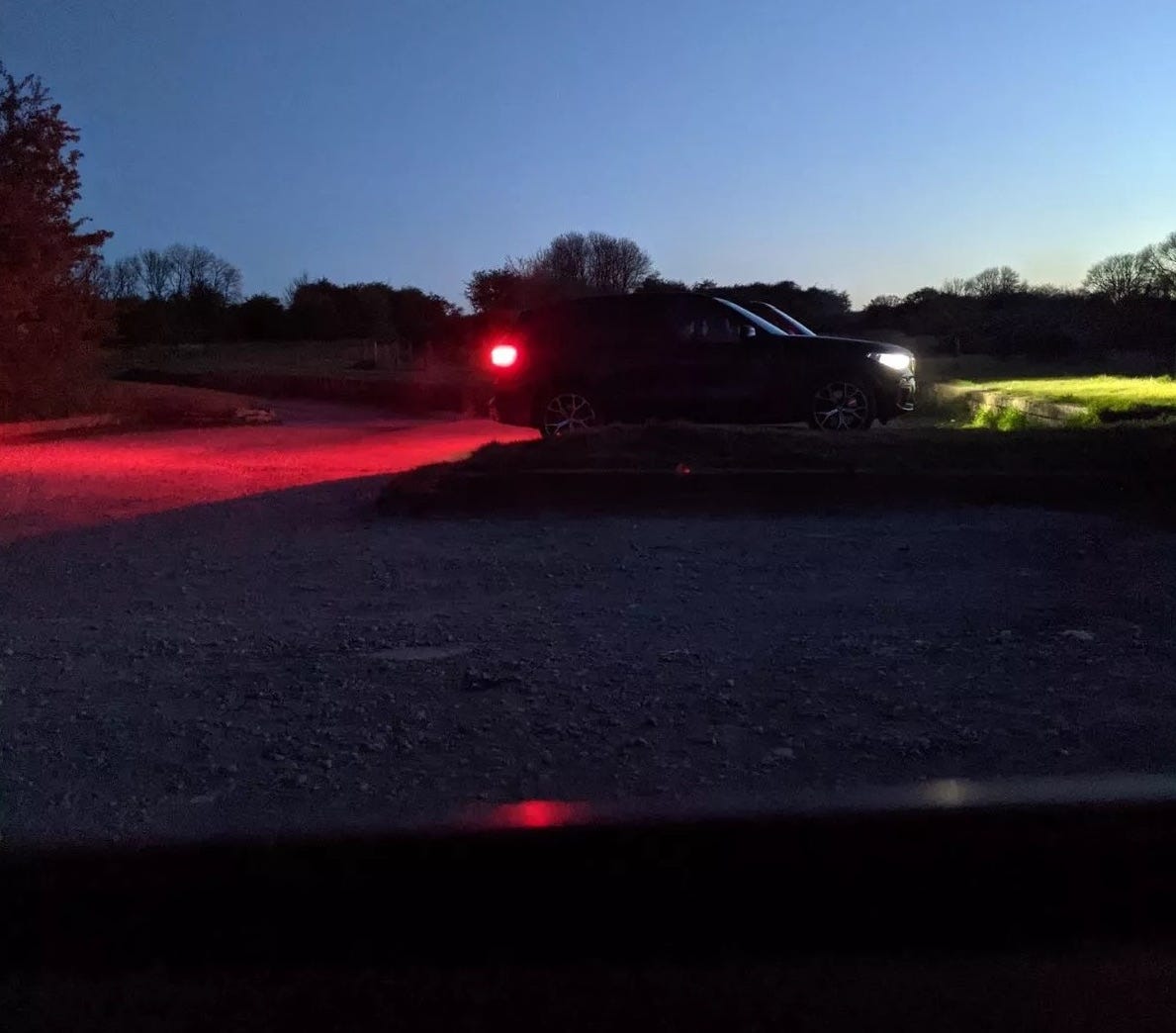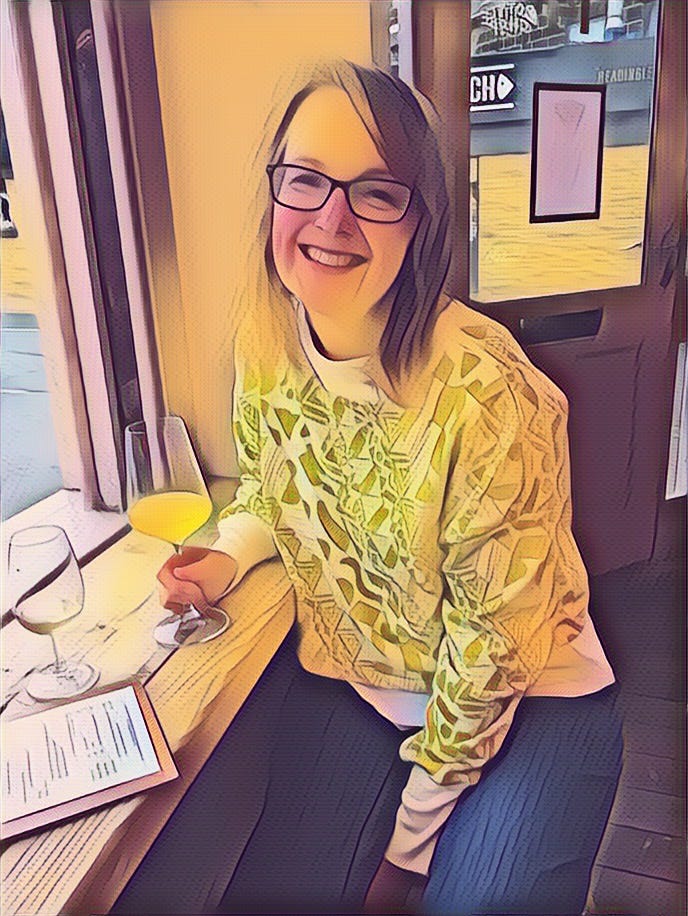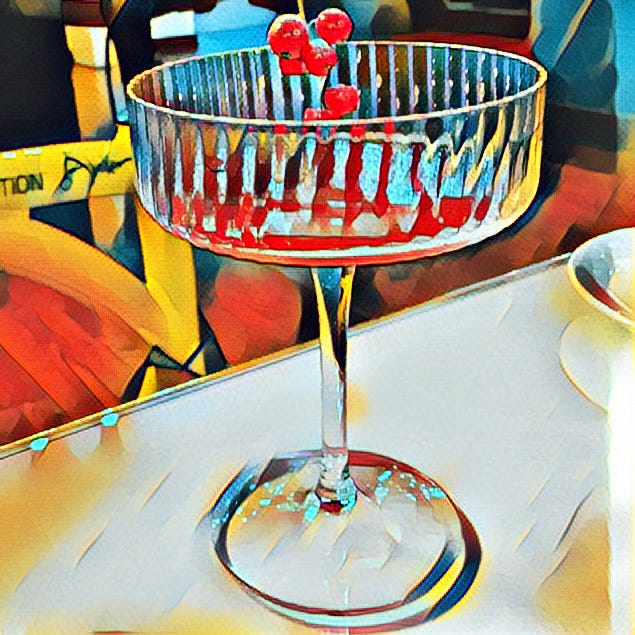I started playing around with the idea of writing a blog when my MS began to show up centre stage in my life. In my intro piece I explain why I decided to share. This post takes a look at how the blog came about.
Receiving my MS diagnosis a few years earlier was a hammer blow. At that point there was clear evidence of what was going on, the MRI scan results were unequivocal. But there was little to display to the outside world for this often terror inducing mindfuck of an illness. To others, my MS probably looked like this:
a slightly scuffy walk (barely perceptible),
a stiff back (who over 45 doesn’t?),
a propensity to take taxis (when others might get there under their own steam).
For crying out loud, I would still dance at your retirement party/wedding do/bar mitzvah (as a guest, not the entertainment) and on the surface everything looked fine. Although the fear of what might happen was as real as the other invisible symptoms, the few external signs seemed like ‘nothing much to write home about’.
When my MS really arrived in town there was a lot to talk about. Under the 2010 Equality Act in England, Scotland and Wales, MS automatically defines a person as disabled from the point of diagnosis. I didn’t see myself as disabled in those days, but now I was becoming physically disabled, and it was visible. My condition started to cause problems that seriously messed with life and my ability to do what I wanted to do without some hefty practical and psychological adjustments. Walking, for example, came to be something to be achieved rather than enjoyed. Once I started to poke my head out of the little cocoon of denial I had wrapped around myself, I had questions I hadn’t planned on being on the agenda in midlife:
⭐️ Has anyone designed any stylish, or at least not hideous looking mobility aids to help me walk? ⭐️
Answer: God yes and thank you so much BE Alink - The Alinker, Lyndsay Watterson - Neowalk, Anders Berggreen and Susanne Nørmark - ByAcre. All listed in my resources.
⭐️ ( … and related to the above). Even though these aids are as cool as, how come it’s one of the hardest things I’ve ever had to do to get out there and use one? ⭐️
Answer: There’s a lot to say about this and it deserves a post or two of its own, coming soon…
⭐️ Are my MS challenges too much for me to still do the things I want to do? Like check out that new fancy wine deli up the road from me… has it got steps? Will I be able to navigate them? Can we still go to our annual summer festival jaunt with our besties? Can I still drive my car? ⭐️
Answer: Sometimes the challenges will be too great. Sadly there are things that have had to go, and sometimes for me having MS feels like a groundhog day of grief and loss, coming back up for air and smelling the roses as each loss is processed and somehow accepted, or not, if that’s not too many metaphors in one sentence. But with radical acceptance, adjustment and the passing of time, there are still so many ways to live a good life.
The wine deli though was a yes, one small step, (a giant leap for me!), an incidental chunky coat hook to grab onto (they had no idea they were helping me), and luckily placed free seats a couple of paces in. The festival was alas, a no. Even though the Deer Shed festival works extremely hard to be accessible* I made the decision my glamping days were over. Extremes of, and even minor changes in temperature can be incredibly challenging for folks with MS. Trying to either find elusive shade in blistering heat, or flailing around in mud when dry level ground is already a test, were unappealing. Driving my car is looking like it’s going to be on the list of casualties.
Ah, there was a lot to deal with here. Did I need therapy? I had already been there. My wonderfully kind therapist Joanna helped me to deal with the trauma of my diagnosis in those early months. It didn’t feel like therapy was the only answer this time.
⭐️ I kept thinking the thoughts. I made notes of the thoughts. I encountered an inquisitive stranger casually wanting to know “what’s wrong with you”? I wrote it down. I felt envious of an MSer slaying it by doing a park run whilst I was struggling with walking. I wrote it down. I noticed how going from being the helper, to being helped was hard. I wrote it down. ⭐️
Had it been made of paper, my iPhone Notes App would have been near full. I started writing up the notes in long form. It was helping me process the difficult stuff, and I realised in the process that I was starting to work out where I stood on some things. I had never been a diary-keeper but I’ve been reading lately about the therapeutic benefits of journaling, and I think that’s what was happening here.
I started to have a creeping compulsion to share, and I’d been helped along my MS journey by some of the ace bloggers already out there. But sticking my personal blah out there for all to see felt not like me at all. I almost never post on Facebook, and on Instagram I just started posting last week!
I needed to talk this idea through. We were chatting after dinner one evening. Jase stacked the pots in the dishwasher while I did the online food shop. After weighing up just how inferior Asda’s essential canned peaches really were to Del Monte’s at a third of the price, I said yes to the latter (contains fruit juice, not syrup) and I launched right in:

“What do you think about blogging?”
Ever supportive and mindful of my MS fatigue, he said:
“well, it could be a way to get our mojo back, and probably wouldn’t need to take up too much of your energy, so yeah I think I’d be up for it”.
“Eh? …. Oh…. I said BLOGGING, NOT Dogging**” I replied.
“Ah ok, yeah I think it’s a really cool idea… ” he shrugged, averting his eyes so I couldn’t clock the disappointment in them over the missed dogging opportunity. ***

One missed opportunity, but we both agreed that blogging was a great idea, the writing was therapeutic, and the sharing might help someone else. The idea of the blog was out there, and after a few false starts, its finally here in the form of a Substack newsletter.
It’s interesting for me to see how the story is unfolding. Things have already changed, some for the better, some for the worse, since I first had the spark of an idea for the blog. But I’m getting used to navigating these uneven footpaths, both literally and figuratively.
Weird how some people get their kicks, but I’ve had fun writing this. I hope you enjoyed it too.
Thank you for reading
Jane 💛
Footnotes.
*Deer Shed festival works alongside Attitude is Everything, an organisation that reduces barriers to live music for disabled audience members,
**Dogging - the practice of watching or engaging in exhibitionist sexual activity in cars or other public or semi-public places. Apparently this is purely British slang so I have offered up a glossary term for international readers (hark at me thinking I’m going global already). Be careful when googling the term (Rob I’m watching you), depending on what kind of results you want. But you might just get nice pictures of dogs.
*** This dialogue never actually happened, just to be clear…
If you haven’t already, subscribe to get new posts directly to your email!
Know someone else who might be interested? You can share a link:
⭐️ To find out a bit more about me see the About section ⭐️








Thank you for providing a dogging definition! Reading on the other side of the world, I thought you were referring to some sort of sled dog activity involving heavy snow, which would also be an ambitious MS activity :)
I definitely enjoyed reading this and I didn’t notice your resource section at first until you provided a link in this post so I will be sure to share these next time I run into anyone newly diagnosed. Also appreciated the dogging definition 😆.
If you are comfortable sharing this in a future post, I found myself wondering about what does “radical acceptance” mean for you? Does your understanding of it shift over time or would you say it remained the same? I notice how people define it in different ways. Some may be aware of one definition of it that repels them as they may not have heard about other ways of understanding acceptance that may better resonate for them. Or maybe for them they find a different way of relating to their experience outside of an accepting stance.